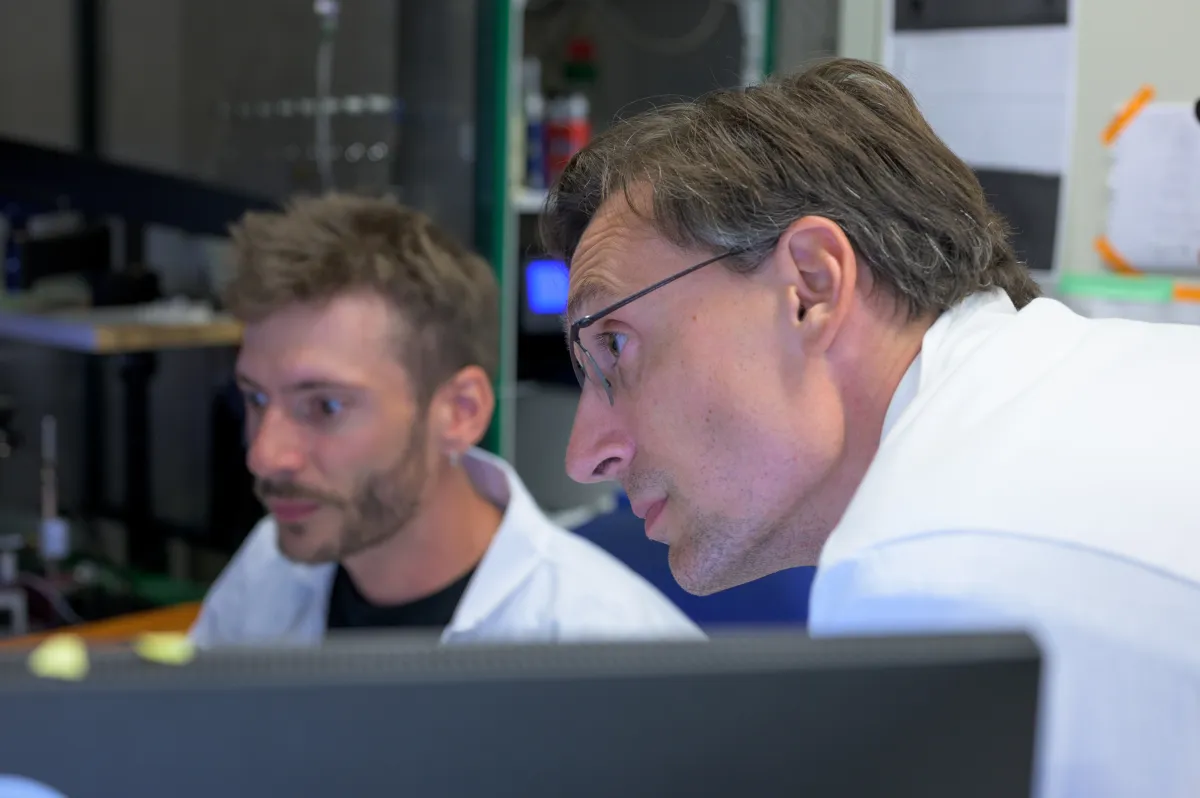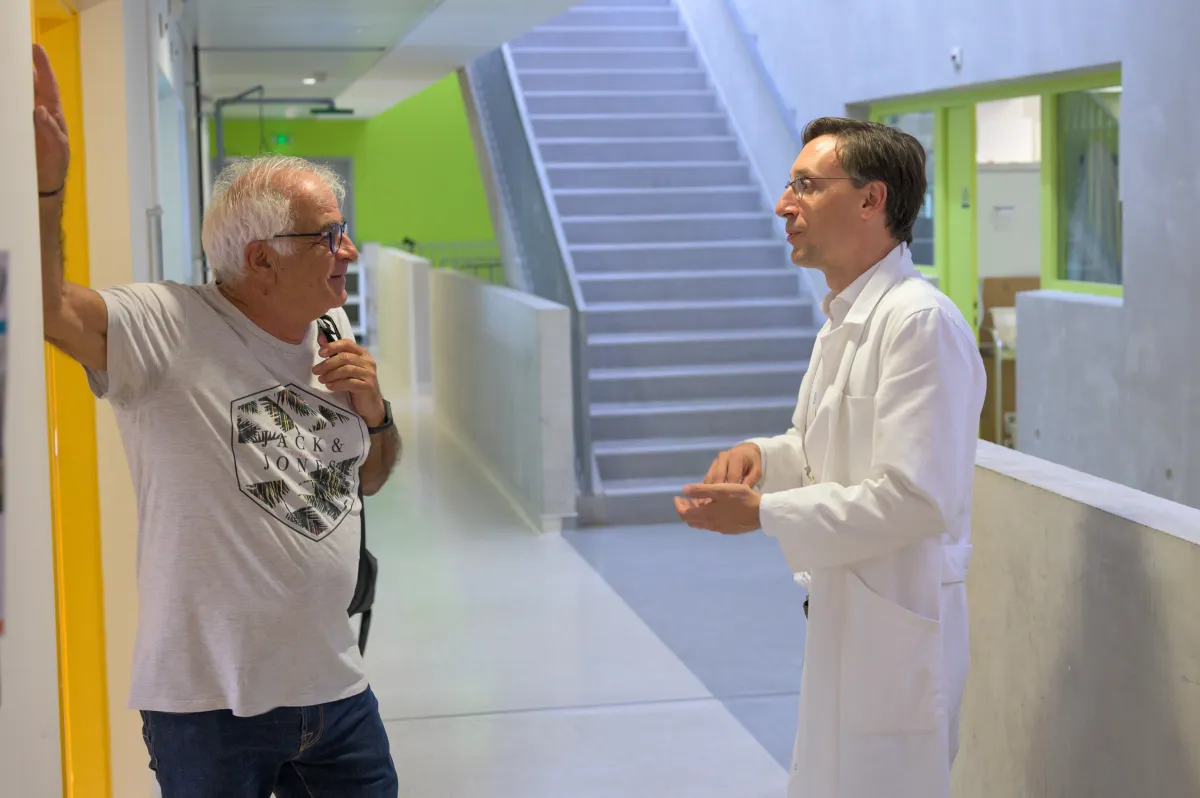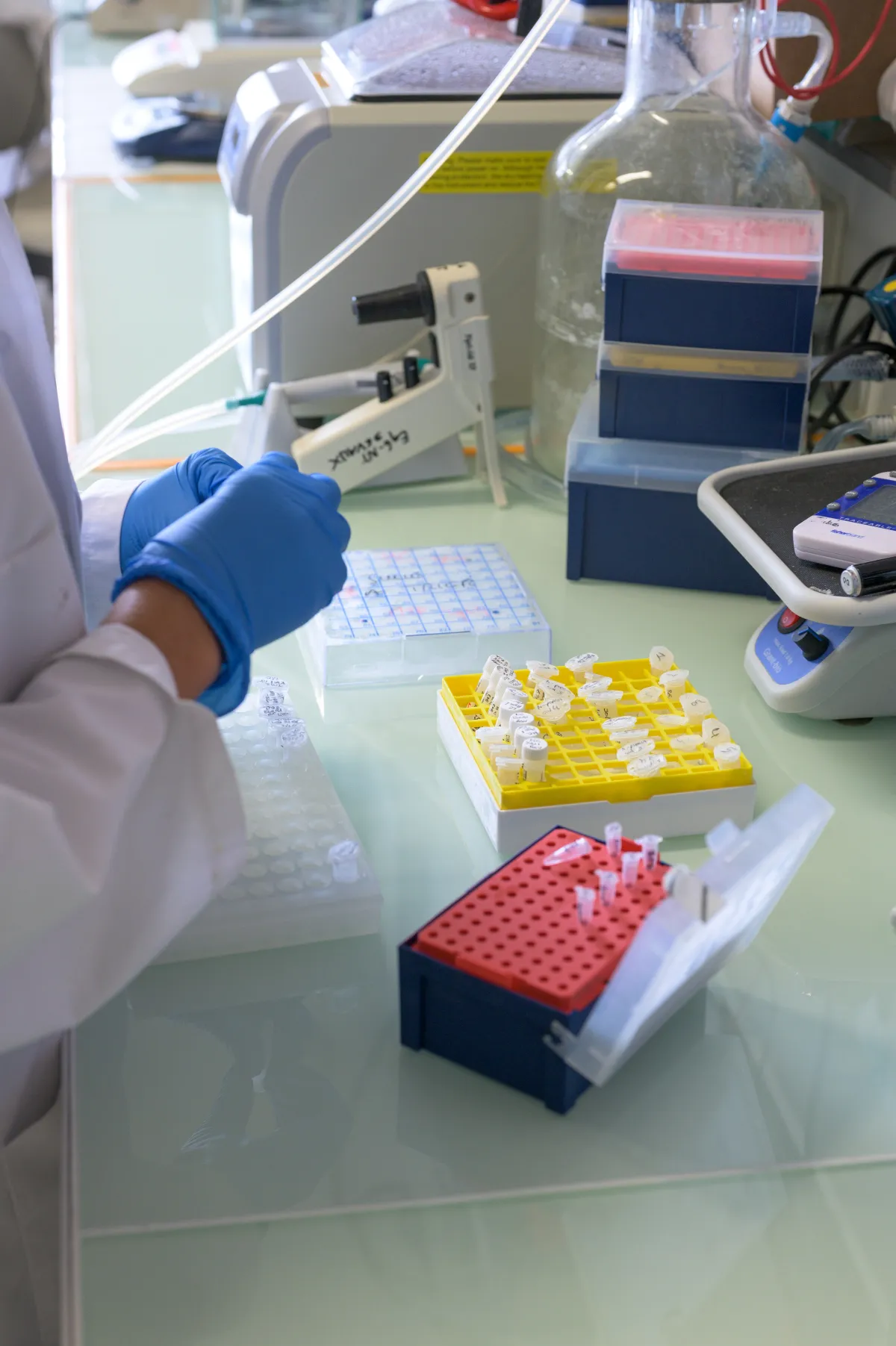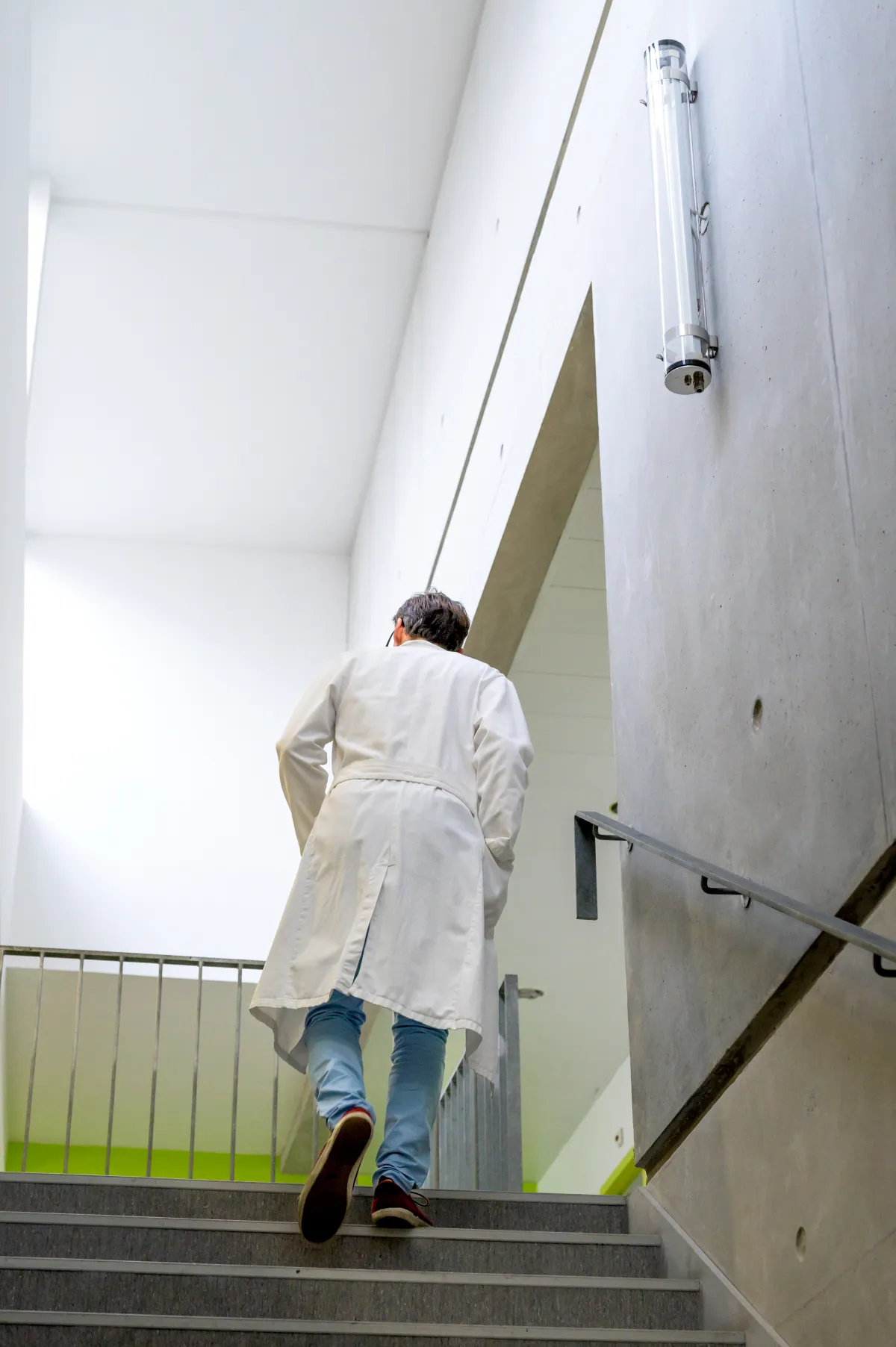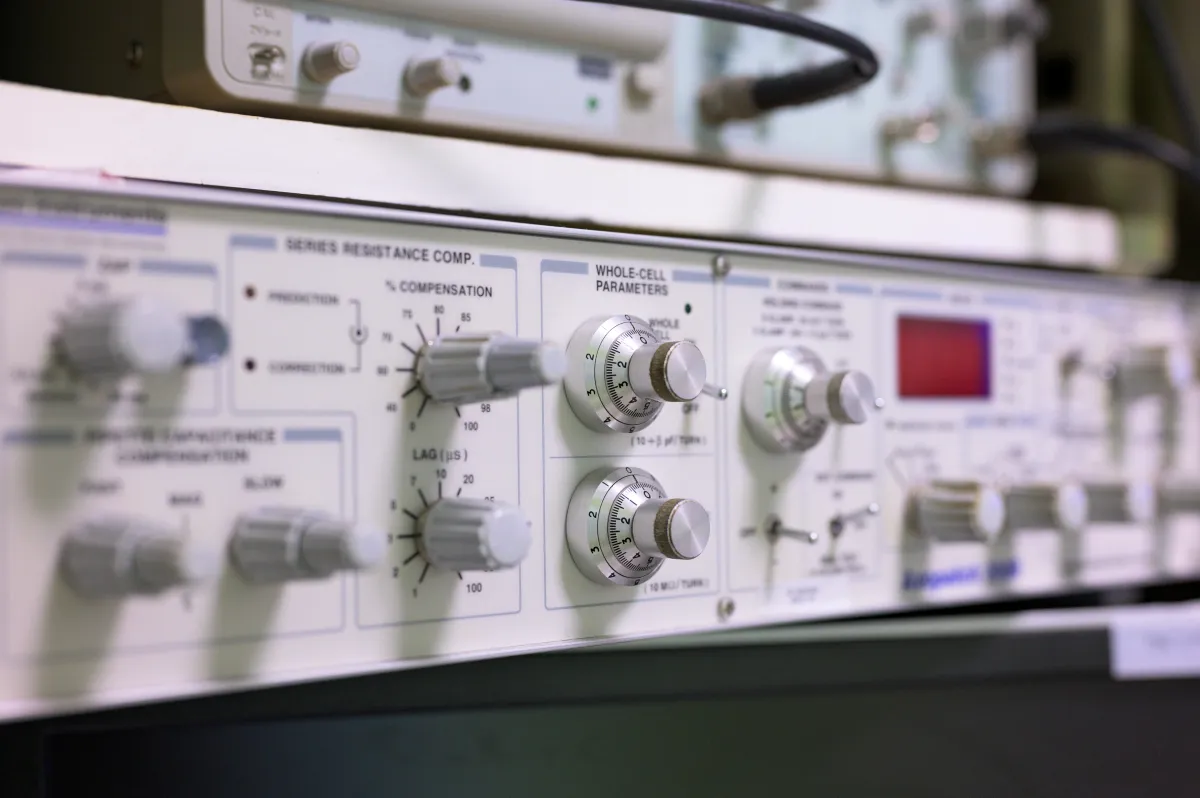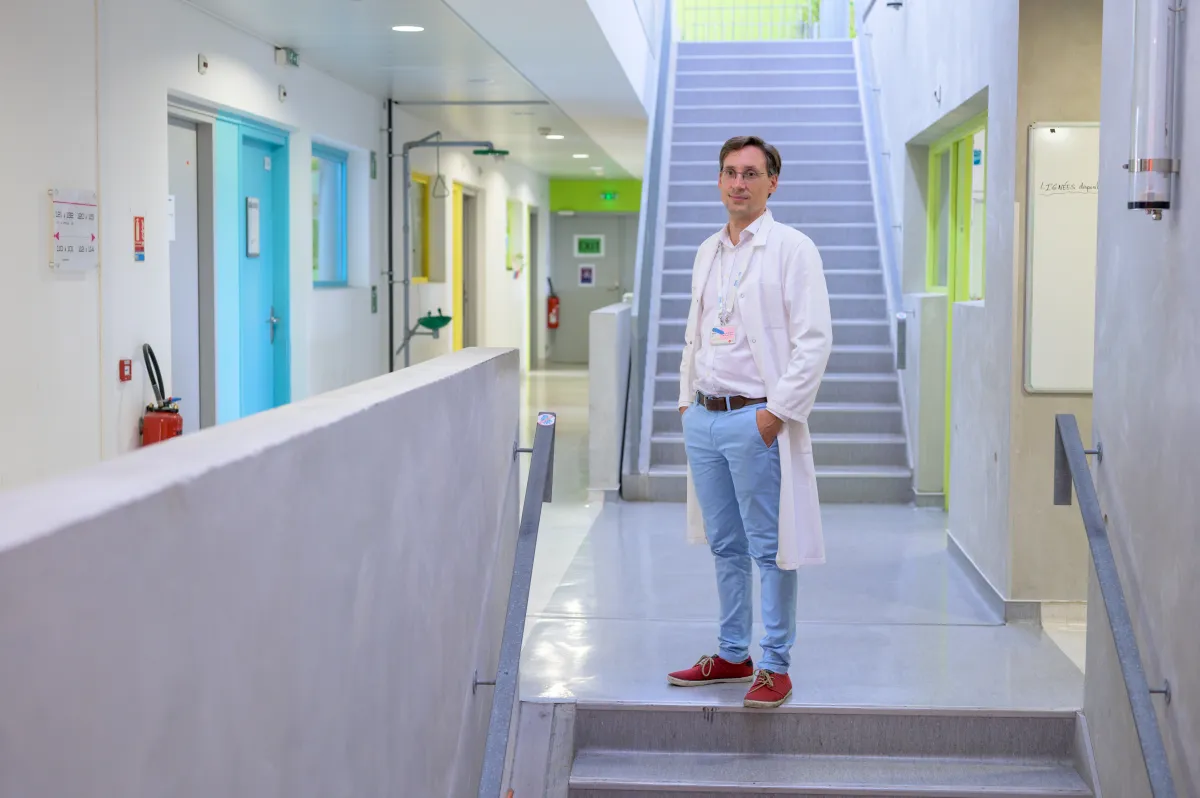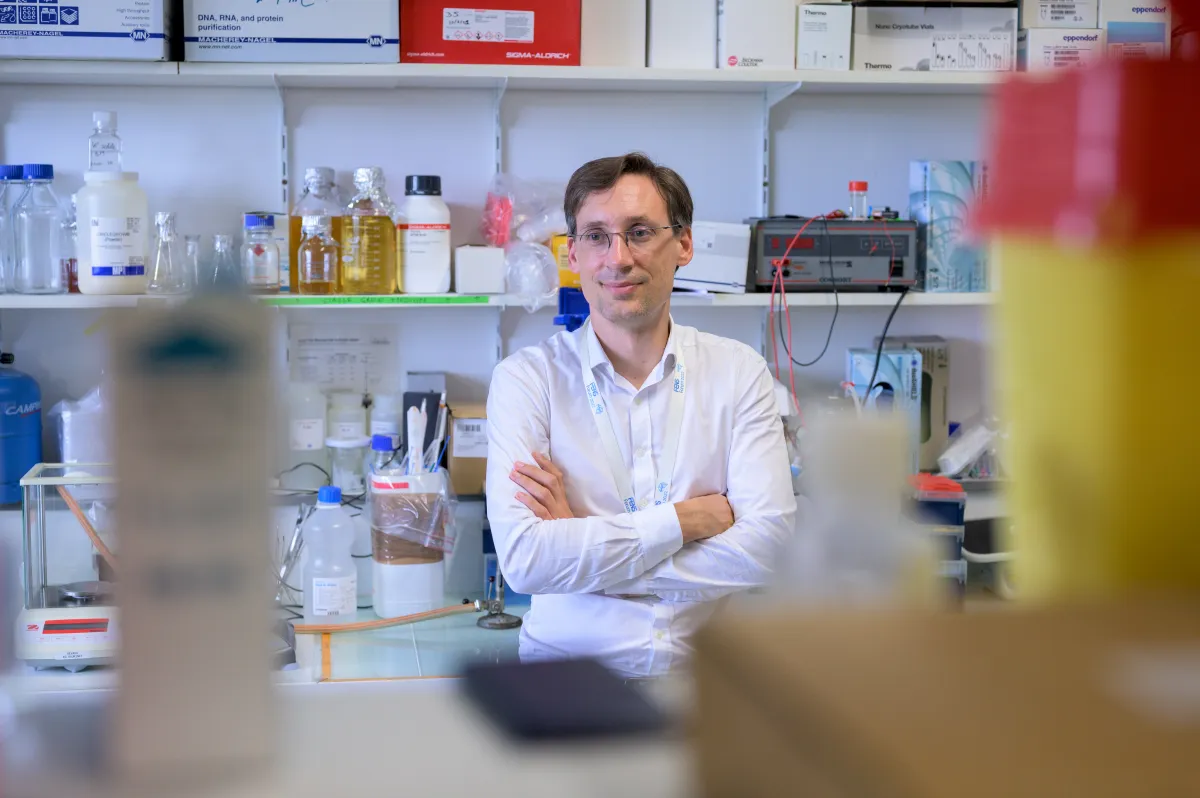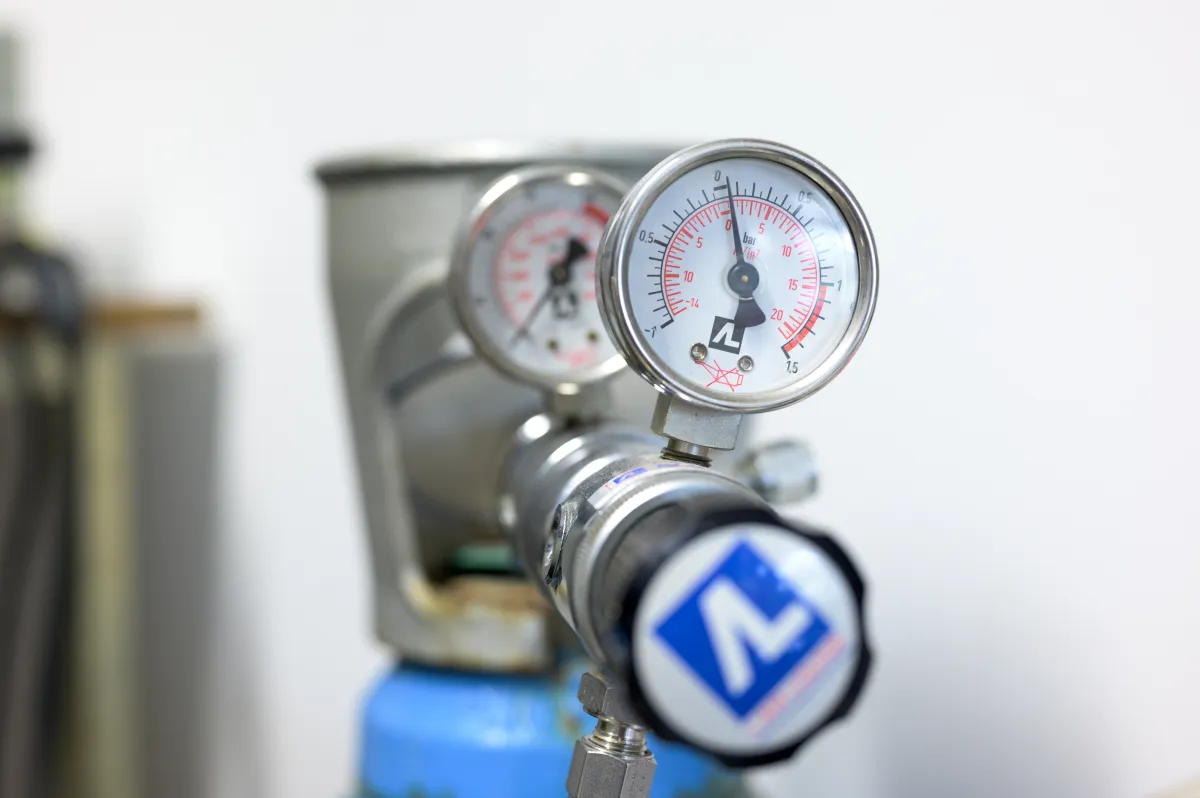Amaury François Mapping the neural circuits that link touch to emotion
Amaury François, researcher, Institute of Functional Genomics, Montpellier, France
- 2022 • Impulscience
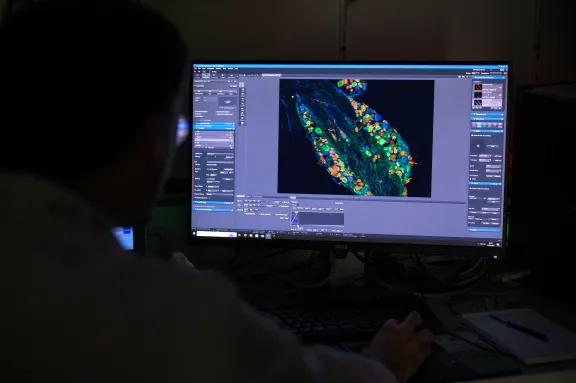
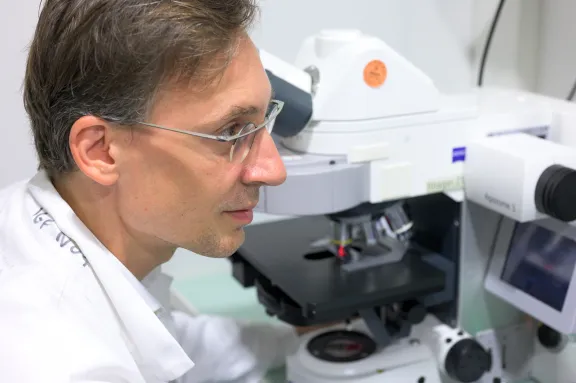

To understand how touch acquires emotional value, Amaury François studies the neural circuits that link the sensory system to reward circuits. His work targets neurons sensitive to caresses: C-LTMR mechanoreceptors.
From sensation to emotion
How can touch create a positive or negative emotion? Touch not only transmits objective information about an external stimulus; it also has an enjoyable or unpleasant emotional dimension essential to the survival of mammals. Pain prompts us to flee from stimuli that are harmful to the body. Conversely, pleasant sensations stimulate social bonds. While the neural networks that transmit objective tactile information are well known, those connected to emotion are more enigmatic. Dr. François aims to identify the neural networks that shape the emotional experience of touch.
Exploring the links between sensory information and reward circuits
Dr. François and his team have discovered neurons in the skin called C-LTMR mechanoreceptors which, when activated, create a pleasant sensation and thus strengthen social ties. He and his team will explore the neural networks activated by petting mice, which link the neurons innervating the skin to reward circuits to trigger a positive emotion. They will focus on a part of the brain called the insular cortex, where certain neurons integrate the information transmitted by the skin’s C-LTMR mechanoreceptors, contributing to the emergence of the positive emotional dimension during a tactile contact.
Understanding sensory processing deregulation to treat chronic pain
Impulscience will allow Dr. François to mobilize innovative biotechnologies such as optogenetics, which uses light to change how neurons function or makes them glow depending on their activity. He will be able to manipulate touch neurons and monitor the neuronal activity of the cerebral regions responding to the stimulation in real time. His research is crucial for understanding the various pathologies linked to a deregulation of sensory processing, such as chronic pain and anhedonia, which is the loss of interest in pleasant stimuli. Dr. François hypothesizes that these disorders are related to a detour of the neural pathways taken by the mechanoreceptors. C-LTMRs would be a potential way to reverse those pathologies, making them a promising therapeutic target.
Amaury François in a few words
Since obtaining his PhD in neuroscience at the University of Montpellier, Amaury François has explored somatosensory pathways to understand pain perception mechanisms. During his post-doctorate at Stanford University Medical School, he designed innovative tools to track the activity of neurons involved in pain and manipulate them. As a CNRS researcher at the Montpellier Institute of Functional Genomics, since 2018 he has continued developing new molecular tools to manipulate touch neurons and behavioral tests to study pleasant touch in rodents. Impulscience grant will allow Dr. François and his team to carry out an ambitious project: mapping the neural circuits that allow the emotional dimension of touch to emerge. This research is crucial for understanding and treating pathological deregulations of the sensory system, such as chronic pain.
Impulscience
Impulscience allocates 7 new grants each year to researchers in the life sciences. Focused on the mid-career, this program aims to support this crucial stage for the development of research projects.
All the award-winners